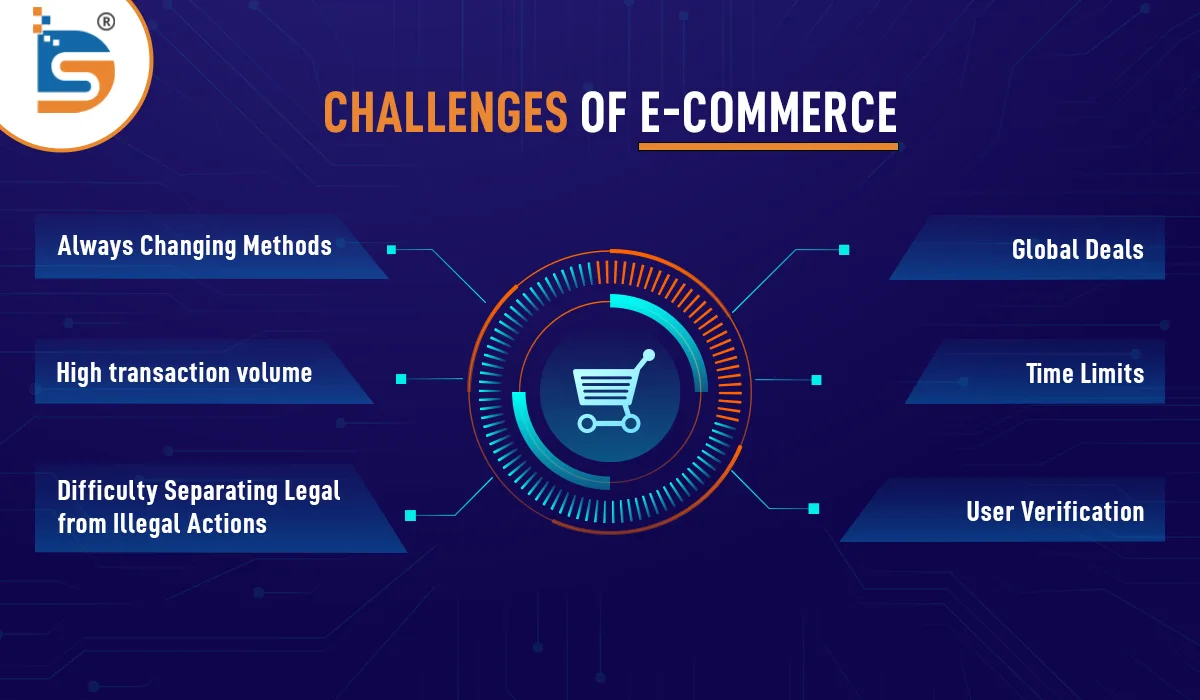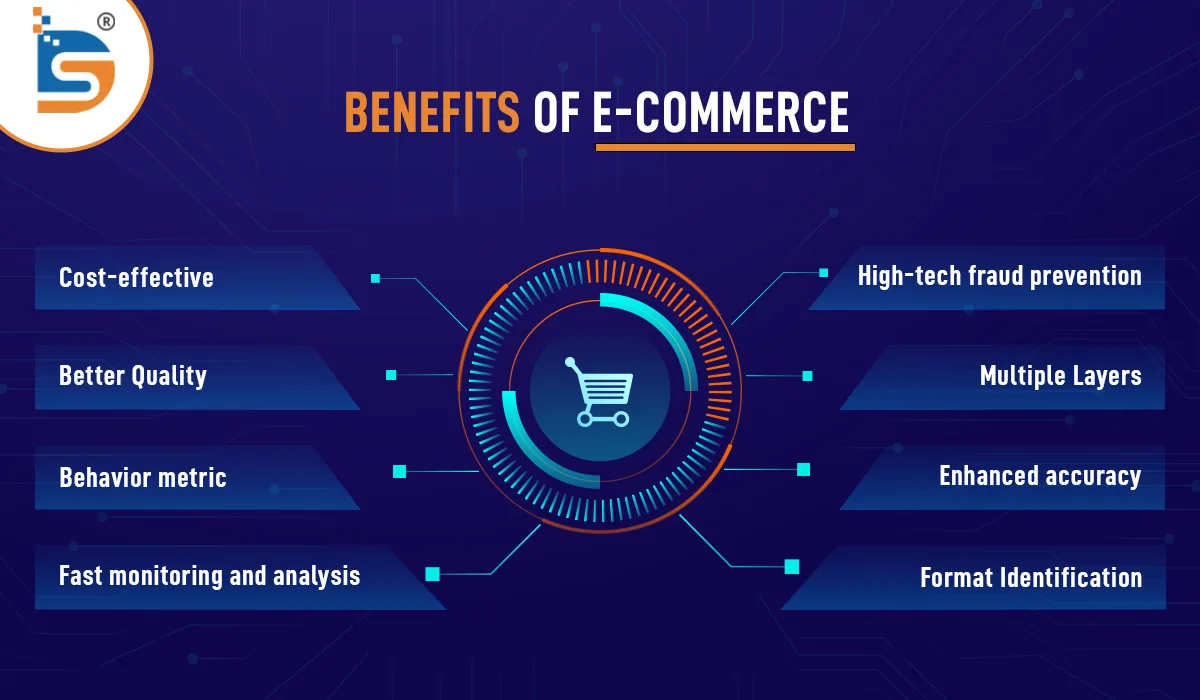AI's Impact on E-commerce Fraud Detection
BY : Sdreatech
05-Mar-2024

In today's fast-paced and digital world, the rise of e-commerce has been unprecedented, and the pandemic has only accelerated this growth. With the world under lockdown and restrictions, digitalization has become a lifeline for businesses, where consumers can purchase everything from essential items to luxury goods with just a few clicks.
With the rapid growth of e-commerce, online fraud has become a major concern for businesses and customers alike. In fact, according to an expert, e-commerce fraud rates have increased by 33% in the past year.
This not only affects the company's bottom line but also damages their reputation and erodes consumer trust. Fortunately, advancements in technology, such as artificial intelligence (AI), have made it possible to detect fraud more effectively and efficiently.
The challenges of e-commerce fraud detection
Due to the constant evolution of fraudulent activities and the growing complexity of online transactions, finding and reducing e-commerce fraud detection presents a variety of challenges. Some of the most significant challenges of e-commerce fraud detection are as follows:

1. Always Changing Methods
Fraudsters always invent new and complex attack methods. Businesses find it difficult to adapt their fraud detection systems to new methods.
2. High transaction volume
There are many transactions every day in e-commerce, making manual reviews difficult. Such evaluations might identify genuine transactions as fraud, making customers unhappy and costing the business money.
3. Difficulty Separating Legal from Illegal Actions
Fraudsters are better at copying real transactions, making fraud detection systems confused. This may result in a high rate of false positives, which would raise operating expenses for companies and delay order processing.
4. User Verification
Criminals have stolen credit card information for most e-commerce transactions. Businesses struggle to verify credit card owners, resulting in hidden fraud.
5. Global Deals
E-commerce has globalized; therefore, businesses increasingly handle international transactions. Fraud detection systems may not be able to handle international fraud patterns.
6. Time Limits
E-commerce companies must process transactions quickly to offer a flawless buying experience. This requires real-time fraud detection systems with a minimum of manual inspection. This could pose a problem because, to prevent order processing delays, fraud detection systems must be precise and effective.
Benefits of using AI in E-Commerce Fraud Detection
AI in e-commerce fraud detection helps businesses fight fraud, reduce false positives, and improve the customer experience. Listed below are some of the most important benefits:

1. Fast monitoring and analysis
Monitoring and analyzing data in real-time is one of AI's biggest advantages. This feature allows e-commerce platforms to monitor all transactions and detect suspicious conduct quickly. This improves the customer experience by reducing the number of incorrect declines, which in turn lowers the risk of financial losses.
2. High-tech fraud prevention
AI-powered fraud detection systems are more effective than traditional approaches because they learn and adapt to new fraud tactics. AI systems can quickly adapt to new fraudster methods to detect and prevent them.
3. Enhanced accuracy
False positives are a major problem in fraud detection because they can cause lawful transactions to be reported as illegal. AI improves fraud detection accuracy, minimizing false positives. This increases customer satisfaction and business efficiency.
4. Format Identification
AI can instantly identify questionable transactions and flag them for further analysis, making it perfect for fraud detection and prevention. If a customer consistently buys small amounts but suddenly buys a lot, the AI system will flag it as unusual and check for fraud.
5. Behavior metric
One of the latest fraud detection technologies is behavioral biometrics. AI algorithms assess typing speed, mouse motions, and scrolling habits to generate a unique profile for each user. This behavioral profile can be used to identify questionable conduct and analyze it. This technology reliably detects fraud that traditional methods can ignore.
6. Multiple Layers
AI-powered fraud detection systems examine client behavior, transaction history, device and location data, and more using many layers. This makes fraud risk assessment more thorough and accurate, reducing errors.
7. cost-effective
Avoiding fraud protects customers and costs businesses. AI cuts fraud detection and prevention costs. Real-time monitoring and automation improve business efficiency while saving time and money.
8. Better Quality
AI's ability to learn and adapt helps detect fraud. More data helps it recognize fraud patterns and respond to new fraud strategies. This makes it better than standard fraud detection approaches, which may use preset criteria and can't keep up with new fraud schemes.
FAQs
Q1: How can AI detect e-commerce fraud?
AI can analyze huge amounts of data in real time, find fraud patterns, and identify suspect transactions for investigation.
Q2: What e-commerce fraud can AI detect?
AI can detect account takeovers, money fraud, identity theft, and fake reviews.
Q3: Can AI decrease e-commerce fraud?
AI can reduce fraud risk and detect it rapidly, but not completely. Secure payment gateways and customer verification are essential for e-commerce firms.
Q4: Is AI only good for big e-commerce companies?
AI benefits businesses of all sizes. Everyone can use AI because there are solutions that fit the needs and budgets of small and medium-sized e-commerce companies.